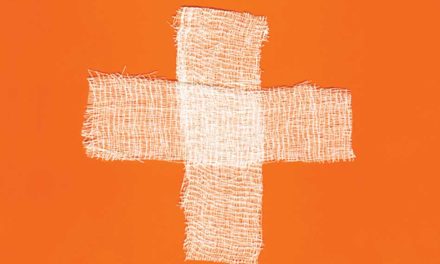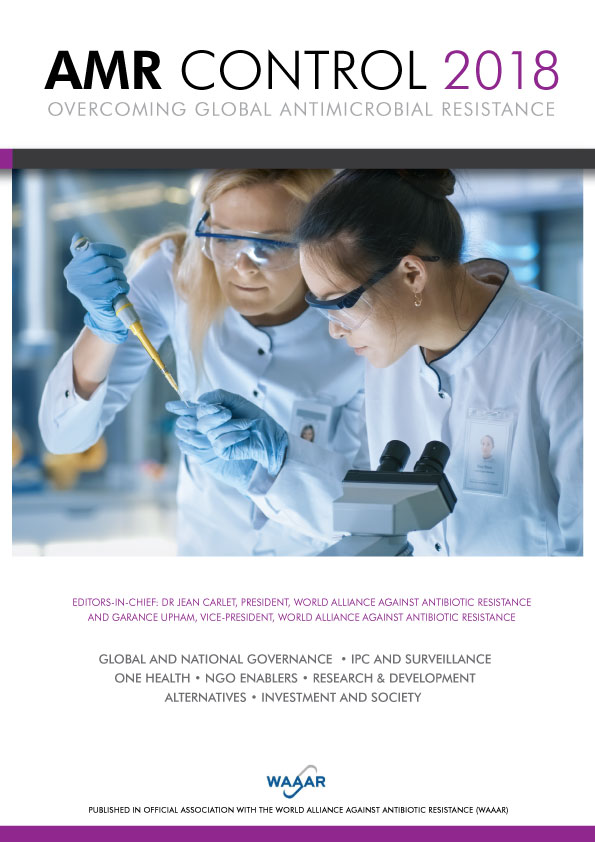Richard you are playing a key role in the
Lancet Commission on Global Cancer
Surgery.  Can you summarise how the Commission came about and how you became involved?
Can you summarise how the Commission came about and how you became involved?
The Lancet Commission on global cancer surgery really rests on another commission that was published in the Lancet in August 2015 entitled “Global Surgery 2030: Evidence and solutions for achieving health welfare and economic development”. I was the cancer representative on that original Commission, and also the lead for doing the research analysis. The Global Surgery 2030 Lancet Commission came about because there was there was a recognition that surgery had become neglected stepchild, a Cinderella, to all the other major modalities of global health. Global Surgery 2030 was really looking at general surgery in deprived populations, and as it progressed it became increasingly clear that this was a massive field to deal with and that the only way we were going to gain any traction was to focus only on particular areas. What we couldn’t do was deal with the more sophisticated and complex elements of surgery.
There were two vast areas that deserved their own commission. One was more complex musculoskeletal work (which included a huge amount of general surgery from reconstruction, malformations all the way to complex trauma surgery and battlefield medicine) and the other big area was cancer. The view was taken that we needed to do a follow on commission focusing on cancer surgery.
How was the Lancet Commission on Global Cancer Surgery set up?
We were very careful. First of all we had to step back and ask what was going to be different about this Commission in comparison to the one on general surgery? How would we build on top of Global Surgery 2030 and how would we make the Lancet Commission on Global Cancer Surgery really practical and useful to a very wide range of audiences?
We took about a year to develop the team and this was very much a work that was carried out hand in glove with the editors of the Lancet Oncology particularly David Collingridge. David was absolutely key to this process because Lancet Commissions are not like normal series or systematic reviews; they are a work between the leads on the Commission and journal editors-in-chief. David Collingridge was looking to take what was done in Global Surgery 2030 and turn it into a cancer campaign. This was part of the overall editorial policy of the Lancet Oncology of developing thematic areas for campaigns.
So we spent an awful lot of time dissecting out what we thought were going to be the broad brush policy areas that we would message around. From that we did a reverse engineering to ask ourselves what are the sort of expertise and partners that we needed. And its interesting because if you now go and look at the Commission you will see this incredible range of people who span all the different income groups and domains of surgery. We were also very aware of the different trajectories for the development of cancer surgery around the world in India, in China. Cancer surgery in many of the countries of sub-Saharan Africa was completely different from what was happening in Latin America. This is the reason why there are so many different authors coming from very different political, disciplinary, geographical and national standpoints.
We also did something a bit more heterodox. We brought in individuals whose expertise was in the political economy of cancer policy. We were very aware of the fact that surgery doesn’t stand alone in any of this and we felt that we needed to bring in this fully rounded group. It is because all this has got history behind it and we wanted to really capture the richness, the creativity and the different models and opinions behind the global cancer surgical community. This was something that we learned for the other Lancet Commissions; that it was important for impact later on.
We took quite a lot of time to develop the framework for the analysis, which was both objective and subjective. In terms of the objective analysis there were specific domains that we wanted to understand. One was around the burden of cancer surgical disease, both now and in the future, and understanding not only what was necessary to be delivered but also what was not being delivered. We made it very clear – this is actually in the title of the Commission – that this was about delivering safe, affordable and timely cancer surgery. If you failed either of those criteria then by definition you were not giving good quality cancer surgery.
We also needed to educate those people who didn’t understand what cancer surgery was and what the impact of surgery was on outcomes. For example to explain to people – and this seems very obvious to us but it is not often not obvious to people outside cancer health care – that there is a triumvirate of pathology, imaging and surgery and that surgery works in a hospital system with diagnosis and pre-care and post-operative care and that the same teams are needed for cancer surgery that are needed for general surgery.
We also did a very complex analysis looking at all the procedures in cancer of which there are nearly 300 procedures of which 120 are major procedures across six different complexity levels. This was important because we had to really be hard-headed about what was the “Art of the Doable”. One of the things we were clear about was that whatever quantitative information we gathered we had to be able to then inform the qualitative policy evidence base.
We were very keen to look at the economic burden as well. We have a significant section dedicated to looking at the economics of cancer surgery, both in terms of productivity losses and to economies due to the failure to look at cancers and what that meant for the future and also microeconomics, social protection, the financing etc.
We were also very interested in approaching this from a systems perspective and this is where it got quite qualitative because we were asking people from very different systems to describe how they were currently delivering their services, or how they were looking to scale up. The Chinese model, for example, is extremely different from a lot of the other models. The Chinese have gone down the route of super, super-specialisation. Huge mega-centres delivering thousands of procedures and in, say, lung thoracic surgery and basically making people come to those centres.
What did the Commission find when it looked at cancer surgery in the low- and middle-income countries?
We discovered that there is a massive disparity between public and private cancer surgery in the emerging economies. There is virtually no governance so what you are getting is very fragmented surgical and general cancer care in these emerging powers. A huge issue emerged when we were looking at the quality of surgery that was being produced. The private sector is extremely unregulated and we know very little about the outcomes coming out of private hospitals. And then, of course, the affordability because cancer surgery is extremely expensive. There was no relation between the amount of money being charged patients and the outcomes or the level of complexity of surgery. The cost was simply what the market could bear.
We were also quite clear that when you got into lower-income countries, although cancer surgery was there, the reality was that they were falling short of general surgery. By that I mean our benchmark for a reasonable country was 20 surgical, anaesthetic or obstetric providers per 100,000 population and we were finding about 0.5 for many low-income countries. We weren’t even into the “Resources for Cancer” bracket. And this is interesting because I think this tells you an awful lot about the reality of building national cancer control programmes in many of these countries. The truth is you’re not building them on anything but fresh air because the general systems of internal medicine, surgery and pathology are just not there.
Is this due to the maturity and evolution of health systems or do you think it’ll be the same in 50 years time?
We think that there are two things. One is there is just a singular lack of appropriate public funding going into many healthcare systems. The absolute bottom line minimum should be 4–5% of your GDP going in and at least a US$100 per capita. If you look across the whole of the LMICs only about eight or nine are above that line.
Secondly, a lot of this unfortunately is around surgery and presentation. Firstly, there are late presentations and then their surgical systems are fragmented and of poor quality. Your outcomes are only as good as the lowest sensitive element, and timeliness is surgery’s grave. You can build up a fantastic surgery service but if you are getting late stage patients presenting you are still going to get the same outcome.
One of the authors on the Commission was a paediatric surgeon. We made the point that while only 20% of children with cancer need surgery it is probably some of the most difficult types of surgery to deliver. The need to train general paediatric surgeons in the basic techniques of certain types of cancer surgery is important, particularly in emerging powers. We think that in low-income countries this is just undeliverable, but in the emerging powers having these super centres, you can actually refer children to, you can.
What are your thoughts on the lack of availability of training in surgery?
The first fundamental, and this is a sine qua non, is that we need to train more surgeons, and anaesthetists. We know from Global Surgery 2030 that training is a disaster in most places in the world. Then as we start getting the numbers coming through, as we are starting to see in India and Brazil, and we make the transition to getting a full complement, by which I mean the proper proportions of public sector surgeons to the population, we need to ensure that a lot of those surgeons are able to deliver the first three tiers of cancer surgery complexity. So this is a general surgeon being trained how to do basic breast cancer surgery without much sophistication. All things being assumed that they are also in centres that have reasonable pathology and reasonable imaging.
The top three tiers of complexity (e.g. a Whipple procedure for pancreatic cancer) can only be done in stand alone cancer centres like Tata Memorial, All India, Rio and the Peking General Hospital. You need those sort of super centres for that sort of sophistication and expertise. For many countries that is going to be well beyond what is considered to be affordable or reasonable to put in place because it is incredibly expensive and complex to have these. For the training aspect, those are the two tiers of training. As a surgeon you are either involved in a super complex speciality, so that you have to be working in a Tata or somewhere like that, or you are in a decent cancer centre in a major hospital. This isn’t doing it at district small hospital, this is just not the reality of cancer surgery.
Once surgeons are trained how do you prevent “human capital flight” and the exodus of talent?
In terms of the flight of individuals it was very difficult. The data is very hard to find. There is a lot of anecdotal data of people being trained and disappearing abroad as economic migrants of healthcare systems. That, unfortunately, is a reality.
People have talked about limited surgical registration that is only recognized in the country. So for instance, in India you get your DM in Surgery. It’s quite hard to get that recognised outside of the country. We are all developing our own areas of expertise, and this is really an important point. A surgeon doing head and neck surgery in India has a certain approach to the disease. They have certain instruments and all the rest of it. It can be very hard moving from there to London or to Memorial Sloan Kettering because the nature of our disease, the instrumentation and the approach is different.
Even for the same cancer?
Yes, we are seeing divergences just on the nature of how you are being trained what access you’ve got to instrumentation, etc. So a surgeon from an emerging country moving to a high-income country ends up dropping down quite a long way in order to get retrained in the way that we do things.
And vice versa. A surgeon from a high-income country, used to doing breast operations in certain way will find it very hard to go to an emerging country to see breast cancer patients where the disease might be fungating and where the theatre doesn’t have much of the equipment that they are used to. Take minimally invasive surgery as an example. A lot places in emerging countries are still doing open radical prostectomies whereas most of our senior people in major institutions in high-income countries do Da Vinci robot. Some of the juniors have done so few open radical prostectomies they probably don’t know how to do it anymore.
How much is innovation shifting away from the necessity for surgery? Does this happen only in the high-income countries?
It happens in both, but it depends on how you define “innovation”.
In the high-income countries, for instance, a lot of the innovation is around the ability to make sure you have got R0 resections; these are margins which are clear, so this is about extremely sophisticated new imaging. It’s around intraoperative radiotherapy, so that you are able to do other things while you are operating with one hit. There has been a huge expansion in minimally invasive surgery in cancer which has been extraordinary for lots of reasons but has had its downsides as well, in terms of cost and unintended consequences. In emerging powers what you are now seeing is people trying “frugal Innovation”. They are asking “What can we do that is not so expensive? Do we really need to do all these node biopsies?” They are compressing the pathway and doing extraordinary innovations around flap reconstructions – free flap, micro flap – because of the nature of the head and neck disease. These are some real innovations in reconstructions that we would never see in the United Kingdom. So it’s around making things easier, cheaper and quicker.
So that more people can be treated?
So we can do faster operations, six patients per day rather than five. But it also that concept of “frugal innovation”. “Do we really need to as much as this? Do we really need to do a massive block resection?” Also, because they have a lot of advanced disease they are trying to downstage in order to make it surgical, they are using a lot of neoadjuvant approaches, inexpensive drugs to shrink the tumour. There is a lot of work going on in neoadjuvant metronomic therapies, like injectable progesterone before operating on the breast to make it more operable. These are things not done in the high-income countries where people present early.
The picture emerging is that there is no way in the foreseeable future for there to be a global standard for surgery.
Well, you have regional guidelines but we are absolutely clear that there are minimal global standards of quality. In the Commission we looked at how to get a quality system. This is about volumes, process and outcomes, which are the three parts of a quality surgical system. Are you doing sufficient volumes for you and your team to be good? What about the pre-operative care, in theatre and postoperative processes of care? And finally what is the 30 day and 90 day mortality of our patients going out?
For that last metric you need to have follow up.
Exactly and in most places you just don’t have that at the moment. There is also a failure to collect standard information: case fatality rates of people coming in and out, information on log books of surgery performed, was it appropriate for that patient etc.? The problem is that if you are a surgeon working alone you will never do this. We knew from Global Surgery 2030 that most places don’t even collect this basic 101 data. This is why you need teams working within hospitals that watch each other. Being part of an organization contributes to higher quality standards through peer review. As it is, we simply do not know what is going on. What we do know is many people get treated in the private sector and then go to the public sector with disastrous treatment histories.
And with no money left.
With no money left. They have had inappropriate care, have no money left, are destitute and now, of course, it’s too late. Usually when they come in they are unsalvageable. Quality surgery is even a problem for Europe. If you look across Europe, you will find the difference in five-year survival rates between the best and worst performing countries, even in breast cancer, is 18%. That is not stage; that is entirely care, so the quality issue around surgery is really significant.
Is if fair to say that the Lancet commission on Cancer Surgery was essentially prepared for advocacy and not necessarily to inform clinicians but to inform the politicians? That this was a piece of important information that would be put on the table so that people could get their teeth into it and have a discussion where before there wouldn’t have been that discussion? And will it be effective?
This is a piece of paper…. a ‘Starter for ten’, to inform a lot of people. The Commission will only be as useful as people want to make it useful. It has provided a backdrop justification for a lot of people’s work on scaling up gynae services in sub-Saharan Africa, on improving general surgery training, on commissioning work for new analysis. There is a project that is going to be started in Australia by Michael Barton who will be doing this; looking at surgical utilization rates based on existing modelling in order to give really hard objective data to national policy-makers about what sort of spectrum and what sort of numbers they can be expecting in 10 or 15 years time for cancer surgery, ahead of the workforce curve.
In a sense what the Commission does is to get inertia out of the system. It allows other people to pick stuff up and run with it. For all these things you really have to sit back and look at them and say “How is this going to be useful? What can I use this for at high level meetings?”
As an example we are now working with the IAEA because up until now their ImPACT missions have not reviewed surgical capacity and workforce as part of their NCCP reviews. They are keen to use the data we have collected to develop a system where they can do the surgical NCCP, which is great because at least that can start being brought into formal assessment. At a global advocacy level the Commission enables UICC and WHO to ask “Why are we talking about medicines again when surgery is the problem?”
The Commission is used three ways: to bring money in; to encourage structural organizational change and to hold people to account, and that third thing is the most difficult. How do you create a peer system to ensure quality?
That might be the last thing.
It is the last thing because it is the most politically sensitive and the most complicated. Even in the most governed country the idea of centralizing surgical services make people go bananas.
Let’s go back to training. You spoke earlier about regional variation in procedures Is there any point in sending people from X-land to London or Memorial Sloan Kettering to be taught procedures that they could never afford to do.
No, you should do it in-country.
Conversely, is there benefit in reversing the polarity and getting people from the high-income countries to go to the emerging countries and become educated in the conditions and practices there?
Absolutely, although you have to be careful. Some of the emerging powers have cancer centres which are at high-income level and they are into some procedures where they want to learn the cutting edge. Having said that, sometimes it’s just human performance. They want to watch how so-and-so operates on somebody.
When you come to the other way round, you’ve got a number of issues to deal with. To begin with, is the disease and the co-morbidities of the patient in front of you the same? Then there is the preoperative work up, and what instruments you can get your hands on. And there is far less propensity for waste. In many emerging economies they can’t afford that sort of waste that is typically found in high-income countries; they look to reuse material. It is very different and a real education. And when you watch someone operating on head and neck cancer at Tata it’s a masterclass of expertise – it’s absolutely brilliant. The same goes for complex surgery of the cervix and endometrial cancers. These are complicated operations and they are amazingly talented. They have often got very new ways of approaching this that we just don’t do. So, learning works both ways.
In my view, in terms of global surgery, those surgeons in the big emerging powers have far more to teach the rest of the world than those in the high-income countries. They are more skilled, they have a broad range of experience, they have just done more of it and they have the reality of the patients.
So South-South exchanges are part of the answer?
Absolutely, and this is already happening
Does medical tourism help or hinder this?
No, it hinders. There is good data coming out now that medical tourism has been a big, big problem because wealthy patients who should have been putting money into their own country’s health system are going to Singapore. We are not talking about the super-wealthy here; a lot of the upper middle class patients get on the plane and go to Singapore. That drains a lot of money out of countries. This is where you need quality kite marks so that people in emerging powers can know that a particular cancer centre in their own country is a decent place to come to and where they are going to get high quality care.
But who can give these quality kite marks?
The quality rests on the name and reputation of the hospital and in the names of the individuals. Top cancer centres have a massive quality brand and are very creative in allowing private and public care to take place in the same institution. New hospitals are being built with this in mind because people will come for the top surgeon. If there is a fire wall between the juniors and nursing staff on the private and the public sides the top surgeon can work either side and it works it very well.
It’s like a bit like an aeroplane. You board an aeroplane and you either turn left or you turn right, but it’s still the same pilot in the front. Don’t get me wrong – you get better food and more leg room in one part of the plane, but the point is all passengers get the same safe journey regardless of where they sit, because that is the pilot’s job. You’ve gone from A to B and the outcome is that all of you arrive safe at your destination.
But if you normally live in grinding poverty then your outcome at 30 or 90 days may be a different story.
Correct but that’s not the responsibility of the cockpit staff. That’s the nature of the bigger problem with co-morbidity. You were in worse shape when you got on board.
What is the situation with regards to surgeons in these emerging powers doing research as part of their job? Have you detected anyone signing up to this idea?
No, there is a massive deficit in this area. There are a few countries like Turkey where global surgery and surgery in cancer is at a reasonable level but it’s a minute percentage really of the global activity. What you are seeing is a reduction of the number of surgeons doing molecular research, basic research and translational research because they can’t compete with amount of time it takes. Surgeons that do research are turning to epidemiology, health services research, implementation science and research relevant to surgery.
And that is increasing?
Yes, that is increasing, but as an overall percentage of what is going on, it is still tiny. Whichever way you look at it, taking the major surgical disciplines, it is ridiculous. It counts for less than 10% of the research activity yet it is responsible for 80% of the outcomes.
How easy is it to find out how many surgeons there are in an emerging country?
It is very hard, unless there is a registered college of surgeons. Most countries have a register of people who are medically qualified but who is surgically qualified, and in what areas they are qualified, is incredibly variable.
So we don’t actually know how many surgeons there are?
No we don’t. We have guesstimates based on sampling in different countries, from going into Hospital X and asking who can operate here? Some are surgeons and when you ask what they can do they say “Anything and everything”. Whatever’s in front of them.
The last question is the Magic Wand question. If you had a magic wand and you could only do one thing, what one improvement would you like to see over the next ten years?
Only one thing I can change? Alright, let’s see…
I would love to see the surgery we do now become safe, affordable and timely. This would change people’s perception that cancer is survivable because a lot of people don’t get decent survivable treatment now. The surgeons would then become the trainers for the new cadre of people coming through.
And I would add on to that Quality, in the public sense of the word, so that quality surgery would become a public sector mandate. And even though patients might still be presenting late, it would be an improvement, whereas if they present early and all they can see is poor surgery and unaffordable surgery, the outcome is still the same. They die, because early surgery, unless it is properly performed, disseminates local and regional disease.






